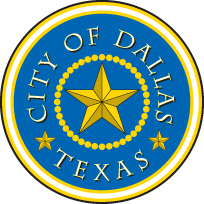- Home
- Media Kit
- Current Issue
- Past Issues
- Ad Specs-Submission
- Ad Print Settings
- Reprints (PDF)
- Photo Specifications (PDF)
- Contact Us

![]()
ONLINE

Developing a Niche
Editors’ Note
Prior to assuming his current post, Walter Chiang served as President of Chiang, Patel & Yerby. He has over 30 years of consulting engineering experience in the planning, design, construction, and operation of numerous large water, wastewater, and solid-waste facilities in the United States and other countries. His particular expertise is treatment process design for potable water, domestic wastewater, and industrial wastewater. Chiang is a member of the Greater Dallas Chamber of Commerce Board of Directors and several professional organizations. He is a registered professional engineer in Texas. He received his MS in environmental engineering from the University of Texas at Austin, and has been an adjunct faculty member at the University of Texas at Arlington since 1975.
Company Brief
Established in 1980 and based in Dallas, Chiang, Patel & Yerby, Inc. (www.cpyi.com), is a full service consulting engineering firm that provides planning and design services to meet the environmental, transportation, transit, and aviation infrastructure needs of governmental agencies. The firm’s clients include Dallas Water Utilities, TxDOT (Texas Department of Transportation), D/FW (Dallas/Fort Worth) International Airport, Dallas Area Rapid Transit (DART), Houston METRO, and Valley Metro Rail in Phoenix. Chiang, Patel & Yerby, Inc., and Nationwide Water Resource Services, Inc. have recently joined forces to deliver specialized services in the water resources field, including flood control, water supply, and regulatory support and permitting.
Could you give a brief overview of Chiang, Patel & Yerby [CP&Y] and the range of services you offer?
We are a full service consulting engineering firm, established in 1980, with several branch offices in Texas and headquarters in Dallas. We also have offices in Oklahoma City, Phoenix, and San Juan, Puerto Rico. We have 200 people providing planning, design, and construction management services to governmental agencies to support their infrastructure needs.
How do you differentiate your services from those of your competitors?
We pride ourselves on developing innovative solutions to meet our clients’ infrastructure needs. We provide solutions that may be simple or complex, but in all cases, we strive to save our clients money in capital costs, operating costs, or both. We also strive to return added value to our clients, often giving them a single solution that solves multiple problems. We work with research institutes and universities to stay abreast of emerging technologies. For instance, we researched airport deicing conditions and how to manage and recycle deicing fluid. We used that knowledge to take an innovative solution to D/FW International Airport that helped it manage its glycol disposal needs more cost effectively.
What sort of companies do you target as potential customers?
Our clients are mainly public entities, such as transportation and government agencies, and cities, as well as TxDOT, DART, D/FW International Airport, and Dallas Water Utilities. With 200-plus people, we are not large, but we take on some very large and complex assignments. Our niche is as a firm that is small enough to give clients a high level of personal service yet large enough to meet almost any need they might have.
Is your focus primarily in your local market?
Approximately 70 percent of our business is in Texas; however, we do work out of state as well as internationally. CP&Y designed a portion of Phoenix’s transit system, and designed Puerto Rico’s North Coast Superaqueduct water supply system, and we have offices in these regions. We managed Oklahoma’s last toll road construction and have an office in Oklahoma City. Internationally, we are conducting evaluations for potential clients in China and India, and we work with the World Bank and Asia Development Bank.
Has the talent pool in Texas, and in Dallas specifically, provided you with the type of employees you need?
Our people are well connected with universities and professional societies. Many of our leaders serve on the advisory boards of universities with engineering schools in Texas. We recruit students from the universities and their graduate schools, and provide internships, which gives us the opportunity to assess if those people are suited to the engineering consulting business, and also gives them a chance to explore our field. We have a lot of homegrown talent, in addition to established leaders from the market.
I volunteer with the local Greater Dallas Chamber of Commerce, and one of our tasks is to make sure that youngsters – not just in Texas, but also in other states – will take a look at the Dallas market. In general, the engineering market in Texas is better than average. We haven’t had a huge problem recruiting people if they’re homegrown, so we get our fair share of talent, and I’m happy with what we have.
On which areas will you focus to drive the firm’s growth in the coming years?
I believe the consulting engineering business is evolving. We are seeing a migration in project delivery from the conventional design-bid-build to design-build and construction management at-risk. The consulting engineer’s role in these types of projects will differ from what we have been used to. We are preparing to evolve our firm to meet those changing needs. We just completed our first two design-build projects as a prime contractor. These projects have shown us some of the changes we will have to make in the way we conduct our business.
At the same time, we have to stay on the leading edge of technology so that we can continue to bring innovative and cost-effective solutions to our clients. In our business, you are only as good as your last project. We must keep on performing at a very high level to keep our clients’ confidence.